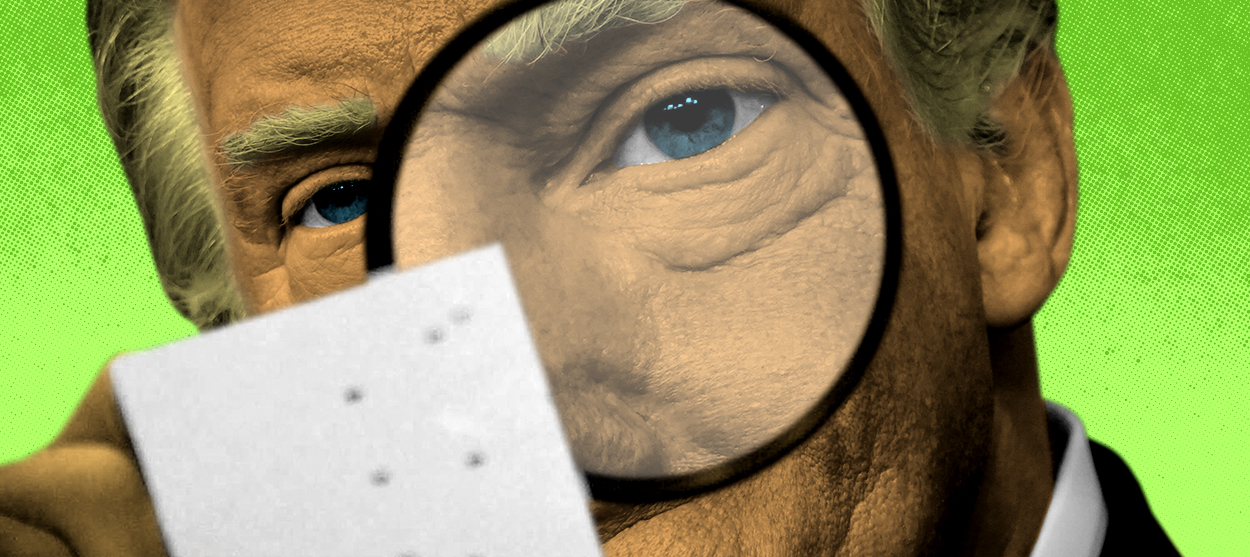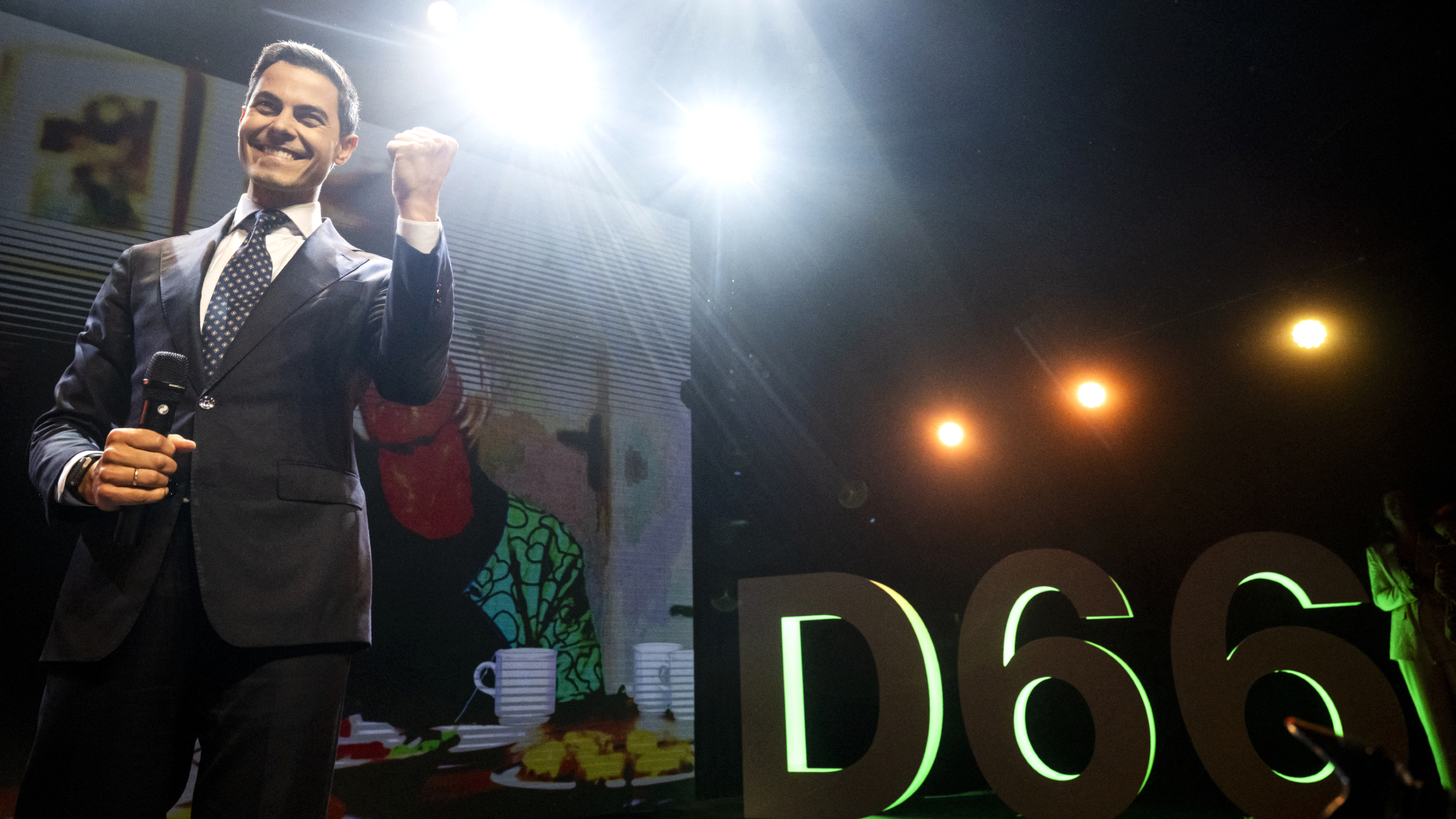Why Bush v. Gore is irrelevant in 2020
Trump supporters hoping for Supreme Court intervention are going to be disappointed


A free daily email with the biggest news stories of the day – and the best features from TheWeek.com
You are now subscribed
Your newsletter sign-up was successful
I cannot be the only person who spent some time last week reading about a certain case decided by the Supreme Court in December 2000. All but inscrutable as a legal text, dismissive of its own power to bind future judges, almost certainly giving rise to two decades of increasingly commonplace legal challenges to elections, and, of course, responsible for the elevation of one man to the presidency of the United States, Bush v. Gore is arguably the most significant case argued before the high court in my lifetime.
Even now it is still shocking. Justice Sandra Day O'Connor was reported as saying that a victory for Gore would delay her retirement plans. Chief Justice Rehnquist, who would die in office five years later, had also made it plain that he wished to resign under a Republican administration. (An unspoken precondition that seems to have been adhered to was that any outgoing justices appointed by Republicans would wait until Bush's second term before stepping down.) The speed with which the case was taken up at the behest of the late Justice Scalia, and the false impression of unanimity with which its apparent author Anthony Kennedy attempted to invest it by issuing it per curiam: All of these are or should be surprising even to those of us old enough to remember when the decision was handed down. While it would be an exaggeration to say that it confirmed popular accounts of the Supreme Court as a nakedly partisan institution, it certainly did no favors to anyone wishing to argue for the independence of the judiciary from electoral considerations.
But audacious as it was, Bush v. Gore is not a good point of comparison for what President Trump and his supporters want from the Supreme Court 20 years later (though on closer examination it might give them a clue about what they are likely to receive).
The Week
Escape your echo chamber. Get the facts behind the news, plus analysis from multiple perspectives.

Sign up for The Week's Free Newsletters
From our morning news briefing to a weekly Good News Newsletter, get the best of The Week delivered directly to your inbox.
From our morning news briefing to a weekly Good News Newsletter, get the best of The Week delivered directly to your inbox.
This is true for a number of reasons. The most obvious is that in December 2000 the plaintiff who prevailed was the apparent winner of the election. With its ruling in favor of Bush, the high court was not overturning what appeared to be the result but confirming it. This is the opposite of what would happen this year if by some extraordinary series of events Trump was handed a victory, or a series of victories, by the court that led him to a second term. For all the recalcitrance of the Trump administration in its handling of the transition process, Joe Biden has all but assumed the office in the eyes of roughly half the country, including the rather important half who comprise the media and business establishments, the federal bureaucracy, and an overwhelming majority in our professional classes. As far as these people are concerned, Biden had all but taken the oath of office on the afternoon of Wednesday, November 4. All of these facts must be faced even by those of us who understand that these impressions are themselves the result of a deliberate strategy by Biden's campaign, abetted by its allies in media, to place his status as president-elect beyond the realm of argument.
But even an acknowledgement of the difference between overturning and finalizing the ostensible result of a presidential contest misses the more salient point that Bush v. Gore was a discrete legal challenge to a specific issue that had arisen in one state, Florida, upon which the outcome of the presidential contest turned. In 2020 by contrast there are any number of lawsuits scattered across a handful of states, none of which is yet close to making its way to the nation's high court. These do not involve a problem comparable to the purely mechanical error of old-fashioned punch card voting machines in Florida, but what would amount to the most widespread election-fixing conspiracy in American history. You do not have to be naive about what Democrats in big-city political machines might be willing to do to accept how unlikely it is that any legal remedies would be forthcoming here. (Though I do wonder: If Trump is a fascist despot, wouldn't it be worth cheating to remove him from office? More to the point, if he were one, surely he would enjoy the ability to rig election results in his own favor, to say nothing of unfettered access to free social media platforms?)
The obvious reason we are seeing so many lawsuits from Trump in so many states is that his campaign understands that he needs to hit on more than one of them. Biden's apparent margin of victory is such that he could hypothetically afford to lose Pennsylvania or (less likely) Michigan and still be elected president. If Trump had somehow won Arizona, where a lawsuit from the campaign centers around fewer than 200 votes, it would be a different story. It is just about possible to imagine a deadlocked election narrowly decided for Trump by the Supreme Court if there were any single state in which a changed result would be determinative.
Even here, though, I have my doubts. How likely would the court really be to take such a step in 2020, especially without the most glaring evidence of fraud or other election-related malfeasance affecting hundreds of thousands of votes? Three of the five or six justices who could hypothetically deliver such a verdict were appointed by this president. Each will serve long after the end of his presidency. The court is not indifferent to its jealously guarded public image: A decision that appears to upend the result of a presidential election is unlikely. Two or three such decisions is unthinkable.
A free daily email with the biggest news stories of the day – and the best features from TheWeek.com
All of which is to say that there is not going to be another Bush v. Gore. If there were one, it is likely to involve the court shutting down a request in Wisconsin or Nevada for yet another recount made by Trump himself.
Matthew Walther is a national correspondent at The Week. His work has also appeared in First Things, The Spectator of London, The Catholic Herald, National Review, and other publications. He is currently writing a biography of the Rev. Montague Summers. He is also a Robert Novak Journalism Fellow.
-
 How the FCC’s ‘equal time’ rule works
How the FCC’s ‘equal time’ rule worksIn the Spotlight The law is at the heart of the Colbert-CBS conflict
-
 What is the endgame in the DHS shutdown?
What is the endgame in the DHS shutdown?Today’s Big Question Democrats want to rein in ICE’s immigration crackdown
-
 ‘Poor time management isn’t just an inconvenience’
‘Poor time management isn’t just an inconvenience’Instant Opinion Opinion, comment and editorials of the day
-
 ‘Poor time management isn’t just an inconvenience’
‘Poor time management isn’t just an inconvenience’Instant Opinion Opinion, comment and editorials of the day
-
 Kurt Olsen: Trump’s ‘Stop the Steal’ lawyer playing a major White House role
Kurt Olsen: Trump’s ‘Stop the Steal’ lawyer playing a major White House roleIn the Spotlight Olsen reportedly has access to significant US intelligence
-
 Japan’s Takaichi cements power with snap election win
Japan’s Takaichi cements power with snap election winSpeed Read President Donald Trump congratulated the conservative prime minister
-
 How realistic is the Democratic plan to retake the Senate this year?
How realistic is the Democratic plan to retake the Senate this year?TODAY’S BIG QUESTION Schumer is growing bullish on his party’s odds in November — is it typical partisan optimism, or something more?
-
 The billionaires’ wealth tax: a catastrophe for California?
The billionaires’ wealth tax: a catastrophe for California?Talking Point Peter Thiel and Larry Page preparing to change state residency
-
 Bari Weiss’ ‘60 Minutes’ scandal is about more than one report
Bari Weiss’ ‘60 Minutes’ scandal is about more than one reportIN THE SPOTLIGHT By blocking an approved segment on a controversial prison holding US deportees in El Salvador, the editor-in-chief of CBS News has become the main story
-
 Has Zohran Mamdani shown the Democrats how to win again?
Has Zohran Mamdani shown the Democrats how to win again?Today’s Big Question New York City mayoral election touted as victory for left-wing populists but moderate centrist wins elsewhere present more complex path for Democratic Party
-
 Dutch center-left rises in election as far-right falls
Dutch center-left rises in election as far-right fallsSpeed Read The country’s other parties have ruled against forming a coalition
